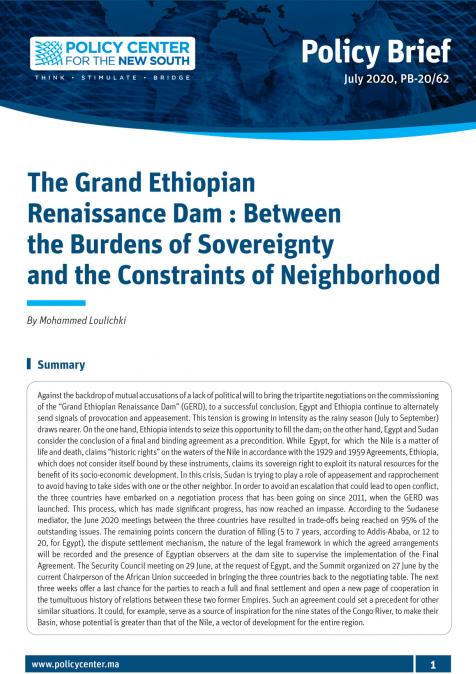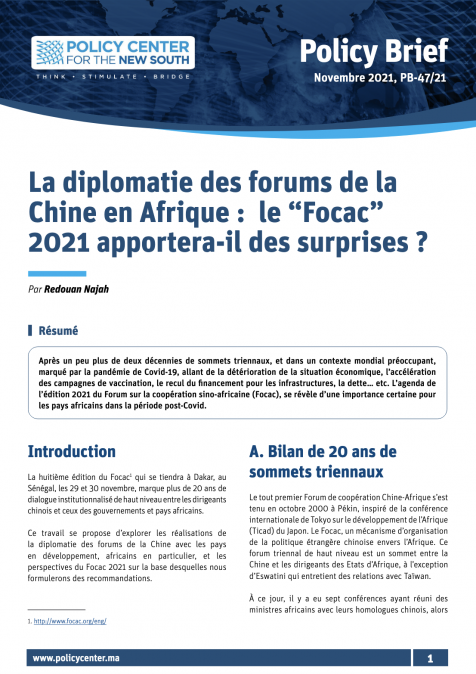Publications /
Policy Brief
Against the backdrop of mutual accusations of a lack of political will to bring the tripartite negotiations on the commissioning of the “Grand Ethiopian Renaissance Dam” (GERD), to a successful conclusion, Egypt and Ethiopia continue to alternately send signals of provocation and appeasement. This tension is growing in intensity as the rainy season (July to September) draws nearer. On the one hand, Ethiopia intends to seize this opportunity to fill the dam; on the other hand, Egypt and Sudan consider the conclusion of a final and binding agreement as a precondition. While Egypt, for which the Nile is a matter of life and death, claims “historic rights” on the waters of the Nile in accordance with the 1929 and 1959 Agreements, Ethiopia, which does not consider itself bound by these instruments, claims its sovereign right to exploit its natural resources for the benefit of its socio-economic development. In this crisis, Sudan is trying to play a role of appeasement and rapprochement to avoid having to take sides with one or the other neighbor. In order to avoid an escalation that could lead to open conflict, the three countries have embarked on a negotiation process that has been going on since 2011, when the GERD was launched. This process, which has made significant progress, has now reached an impasse. According to the Sudanese mediator, the June 2020 meetings between the three countries have resulted in trade-offs being reached on 95% of the outstanding issues. The remaining points concern the duration of filling (5 to 7 years, according to Addis-Ababa, or 12 to 20, for Egypt), the dispute settlement mechanism, the nature of the legal framework in which the agreed arrangements will be recorded and the presence of Egyptian observers at the dam site to supervise the implementation of the Final Agreement. The Security Council meeting on 29 June, at the request of Egypt, and the Summit organized on 27 June by the current Chairperson of the African Union succeeded in bringing the three countries back to the negotiating table. The next three weeks offer a last chance for the parties to reach a full and final settlement and open a new page of cooperation in the tumultuous history of relations between these two former Empires. Such an agreement could set a precedent for other similar situations. It could, for example, serve as a source of inspiration for the nine states of the Congo River, to make their Basin, whose potential is greater than that of the Nile, a vector of development for the entire region.







